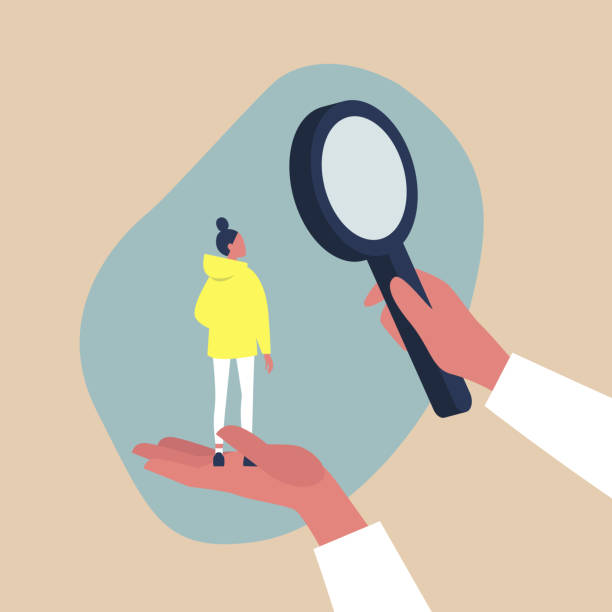It’s no secret that obsessive-compulsive disorder (OCD) and stalking share some commonalities. In fact, the two disorders are so closely linked that some people may not be able to tell them apart. If you are struggling with OCD, it is important to be aware of the potential for stalker behaviors and take steps to protect yourself. In this blog post, we will discuss the connections between OCD and stalking and provide information on how to get help if you need it.
Contents
Understanding OCD And Stalking
 OCD and stalking are often thought of as two completely separate things, but there can be a very fine line between the two. People with OCD may fixate on someone they know or even a celebrity, and this fixation can lead to stalking behavior.
OCD and stalking are often thought of as two completely separate things, but there can be a very fine line between the two. People with OCD may fixate on someone they know or even a celebrity, and this fixation can lead to stalking behavior.
OCD is a condition that affects a person’s thoughts, feelings, and behaviors. It can cause a person to have intrusive, unwanted thoughts (obsessions) that lead to compulsions (repetitive behaviors or mental acts. That a person feels compelled to do to try to relieve the anxiety caused by the obsessions).
And stalking is described as a pattern of repeated and unwanted attention, harassment, contact, or any other behavior directed at a specific person. That would cause a reasonable person to feel fear. In simple words, this condition is often about feeling unsafe or threatened by someone who is repeatedly trying to invade your personal space.
Overall, OCD and stalking are described as a pattern of behavior that is unwanted and makes the victim feel unsafe. If you or someone you know is struggling with either of these conditions, it is important to seek professional help. There are many resources available to help those who are struggling with OCD and stalking. With the right treatment, both conditions can be treated.
How OCD And Stalking Are Related?
Many people wonder how OCD and stalking are related. The answer may not be as simple as you think. In fact, there are many different ways that these two conditions can be connected.
One way that OCD and stalking can be related is through the obsessions that people with OCD often have. People with OCD may become obsessed with a certain person or thing. This can lead them to stalk the person or object of their obsession in an attempt to get closer to it.
Another way that OCD and stalking can be related is through the compulsions that people with OCD often engage in. People with OCD may feel the need to repeatedly check on the person or thing that they are obsessed with. This can lead them to stalk the person or object of their obsession in an attempt to make sure that they are safe.
Finally, it is important to remember that people with OCD are often very anxious. This anxiety can lead them to engage in behaviors that may look like stalking but are actually just the result of their anxiety.
If you or someone you know is struggling with OCD or stalking, it is important to get help. There are many resources available to help you understand and manage these conditions. With the right help, you can overcome OCD and stalking.
Can OCD Lead To Stalking?
 OCD and stalking are two very different conditions, but they can sometimes be confused with each other. Stalking is a serious problem that can have legal consequences, whereas OCD is a mental disorder that requires treatment.
OCD and stalking are two very different conditions, but they can sometimes be confused with each other. Stalking is a serious problem that can have legal consequences, whereas OCD is a mental disorder that requires treatment.
It’s important to understand if OCD can lead to stalking, and if so, how to get help. Let’s understand how OCD can lead to stalking and how many chances are of it happening.
When someone has OCD, they often have intrusive thoughts that cause them anxiety. These thoughts can be about anything, but they are usually about things that the person is afraid of. For example, a person with OCD might be afraid of getting sick, so they might have thoughts about germs and contamination.
However, there is evidence that suggests that people with OCD are more likely to stalk someone. A study found that people with OCD were four times more likely to stalk someone than people without OCD. The study also found that people with OCD were more likely to stalk someone who they were obsessed with, such as an ex-partner or a celebrity.
So, if you have OCD, you may be more likely to stalk someone. However, this doesn’t mean that you will definitely stalk someone. It’s important to get help for your OCD so that you can control your intrusive thoughts and reduce your anxiety. If you think you might be stalking someone, you should seek help from a mental health professional.
What Are The Possible Consequences?
 There are potential consequences for both the victim and the perpetrator when it comes to OCD and stalking. The victim may experience anxiety, depression, insomnia, fear, and even post-traumatic stress disorder. However, some of the negative consequences can also be felt by stalkers. These include:
There are potential consequences for both the victim and the perpetrator when it comes to OCD and stalking. The victim may experience anxiety, depression, insomnia, fear, and even post-traumatic stress disorder. However, some of the negative consequences can also be felt by stalkers. These include:
Socially isolated
This is one of the most common consequences for both the victim and the perpetrator. When someone is struggling with OCD, they may start to feel like they are the only one that is going through this. This can lead to them feeling isolated and alone. For the perpetrator, this may manifest as feeling like they are not worthy of love or attention.
Loss of employment
This is another common consequence for both the victim and the perpetrator. When someone is struggling with OCD, they may start to miss work or be less productive at work. This can lead to them losing their job. For the perpetrator, this may manifest as feeling like they are not good enough or that they will never be able to find a job.
Depression
People usually think of OCD as excessive hand-washing or straightening items in neat rows. But there is a much darker side to mental illness. Some people with OCD engage in stalking behaviors. And this can further lead to depression because of the shame and isolation that comes with it. While the vast majority of people who suffer from OCD don’t stalk, those that do often face a lot of challenges.
Physical impacts
It is one of the most mentally and physically debilitating disorders. People with OCD can have a hard time going to work or school, maintaining relationships, and taking care of themselves. Many people with OCD end up housebound. It is also to be said that OCD can take a toll on your physical health. People with OCD often suffer from sleep deprivation, weight loss or gain, and gastrointestinal problems.
Difficulty sleeping
This is one of the most common consequences in people who are struggling with OCD and stalking. Many times individuals with OCD will have intrusive thoughts that are so disturbing they can’t fall asleep or stay asleep. As a result, they may start to experience anxiety and depression. In addition, their daytime functioning can start to suffer as well.
So, overall the imp[acts can be far-reaching and significant. If you are struggling with OCD and stalking, it is important to get help from a mental health professional who can provide you with the support and resources you need to manage your symptoms. There are also a number of helpful books and websites that provide information about OCD and stalking.
How To Manage OCD And Stalking?
 There are many ways in which people with OCD and stalking can get help. As there are times when a person stalks even do not realize that they are stalking. Here are some of the ways in which a person with OCD and stalking can get help:
There are many ways in which people with OCD and stalking can get help. As there are times when a person stalks even do not realize that they are stalking. Here are some of the ways in which a person with OCD and stalking can get help:
Talk to your loved ones
This is one of the things that people with OCD and stalking can do. As talking to a loved one about the problem can help in managing it. It is believed that your loved one can be a great support system. Because if you have someone to talk to or share your problems with, it can help in managing the problem to a great extent.
Moreover, you can also write journals or diaries. In which you can write down your thoughts and feelings. This will help in managing OCD and stalking. As it will help you to keep a track of your thoughts. And you will be able to see the progress that you have made over time. For example, if you feel that you are getting better or worse.
Challenge your thoughts
If OCD obsession or compulsions are fueling your stalking behavior, it’s important to learn how to challenge and reframe these thoughts. This can be a difficult and painstaking process, but with the help of a therapist trained in CBT, you can begin to see the thoughts for what they are: distortions that don’t reflect reality.
For example, a person with OCD might be obsessively worried about their partner cheating on them. This can lead to checking their partner’s phone, following them, or even hiring a private investigator.
Find healthy coping mechanisms
When you are feeling obsessed over a person or situation, it is important to find a healthy way to cope. This may include several things, such as:
- Writing in a journal
- Spending time in nature
- Staying active
- Spending time with friends and family
These are just a few examples, but finding what works for you is important. If you are struggling to find healthy coping mechanisms, it is important to seek professional help. However, coping mechanisms can help you to deal with the thoughts and feelings you are experiencing in a healthy way.
Talk to a professional
 This is another way in which people with OCD and stalking can get help. Getting professional help can be vital in addressing and managing OCD, it can also be beneficial in helping to address stalking behaviors. If you are struggling with either OCD or stalking, talking to a therapist can be a great step in getting the help and support you need.
This is another way in which people with OCD and stalking can get help. Getting professional help can be vital in addressing and managing OCD, it can also be beneficial in helping to address stalking behaviors. If you are struggling with either OCD or stalking, talking to a therapist can be a great step in getting the help and support you need.
There are many different types of therapies that can help you. These include:
- Cognitive Behavioral Therapy: This type of therapy can help you to understand and change your thoughts and behaviors.
- Exposure and Response Prevention Therapy: This type of therapy can help you to face your fears and learn how to manage your anxiety.
Getting help from a therapist can be really beneficial in managing both OCD and stalking. If you are struggling with either of these, please reach out for help.
Consider medication
If you feel like your thoughts are running away from you and impacting your quality of life, it may be time to consider medication. There are many different types of medications that can help to treat OCD and stalking. Some of these may include:
- Selective serotonin reuptake inhibitors (SSRIs)
- Tricyclic antidepressants (TCAs)
- Monoamine oxidase inhibitors (MAOIs)
It is important to discuss all the options with your doctor to find the best medication for you. If one type of medication does not work, do not give up hope. There are many different medications available and it may take some trial and error to find the one that works best for you.
So these are some of the ways through which you can manage OCD and stalking. Do not let these thoughts take over your life. You are in control and you can get help. Remember, you are not alone. There are many people who suffer from OCD and stalking and there is help available. Do not be afraid to seek out the help you need. It could be the best decision you ever make. If you or someone you know is suffering from OCD or stalking, please reach out for help.
Conclusion
To conclude OCD and stalking are very much connected. It is believed that both are linked to an individual’s need for control. If you or someone you know is struggling with either OCD or stalking, please reach out for help. There are many resources available and treatment can be very effective. Also, if you are being stalked, please seek help and report the stalking to authorities.
Moreover, you should keep in mind that both OCD and stalking can have a serious impact on your life. If you think that you might be struggling with either of these disorders, please reach out to a mental health professional for help. You just need to remember that you are not alone in this and there is help available.
You can contact Therapy Mantra for more information about treatment for OCD and stalking. Therapy Mantra offers online mental health services that are convenient, affordable, and confidential around the globe. Contact us today to learn more about our services. You can also book an online therapy and counseling session or download our free OCD treatment app on Android or iOS.


